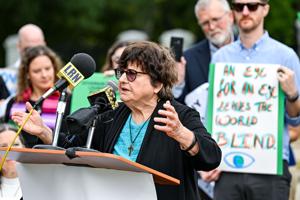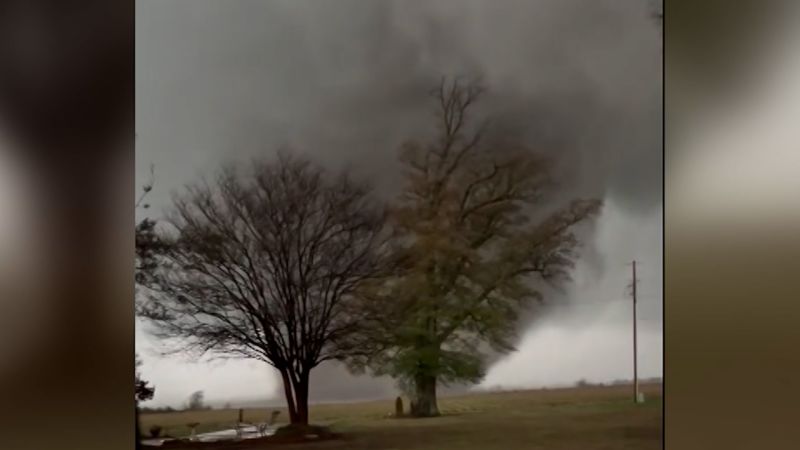
Sister Helen Prejean speaks out against the death penalty outside the Governor’s Mansion Tuesday morning for World Day Against the Death Penalty on October 10, 2023. Javier Gallegos Angola, Louisiana State Penitentiary, removing the electric chair - Alton Lathney, a maintenance foreman, and George Padgett an electrician foreman, prepare to remove that was once used in executions at the Louisiana State Penitentiary in Angola, Louisiana. Between August 6, 1941 and June 9, 1961, executions were by electrocution in the electric chair.
Between 1941 and 1957, a portable electric chair was transported from parish to parish in order that the death penalty could be administered in the parish where the crime was committed. After 1957, the state was again responsible for administering the death penalty. Norman J.

Berteaux Kathy Randels leads religious leaders and advocates in song outside the Governor’s Mansion Tuesday morning for World Day Against the Death Penalty. Javier Gallegos The new execution chamber at Angola and the mask for the nitrogen gas. Photo from court records in Jessie Hoffman's execution case.
Nicknamed “Gruesome Gertie” by inmates on Death Row, the electric chair formerly used for executions at the Angola State Penitentiary is seen, Thursday, February 29, 2024, at the Angola State Penitentiary Museum in Angola, La. STAFF PHOTO BY HILARY SCHEINUK Facebook Twitter WhatsApp SMS Email Print Copy article link Save Before Jessie Hoffman Jr. enters Louisiana’s execution chamber at Angola, which is expected on Tuesday, he will walk past two colorful paintings of scenes from the Bible.
One shows Elijah, the Old Testament prophet, ascending to heaven on a chariot engulfed with flames. The other depicts Daniel praying for God to save him from the lions’ den. “That was the attempt of the prison to give the blessing of religion on what was about to happen,” said Sister Helen Prejean , a Baton Rouge native, Roman Catholic nun and famed anti-death penalty activist.
“That just as Elijah was brought up in a fiery chariot, so now the condemned was going to go to God in the fiery chariot of the electric chair.” A painting of Elijah the prophet being taken to heaven in the Old Testament hangs near the execution chamber at Angola in Louisiana. Photo provided by Sister Helen Prejean.
The Biblical paintings Hoffman will encounter near the death chamber will underscore an essential fact about Louisiana: religion remains a central part of the life and culture of the state, including when it comes to the death penalty. Anti-death penalty advocates are lodging a final push to spare Hoffman from being put to death, via nitrogen gas, for the 1996 kidnapping, rape and murder of Molly Elliott in rural St. Tammany .
Though Hoffman’s attorneys have centered their arguments on execution methods and legal precedent, the broader debate over the state’s first execution in 15 years has been imbued with questions of religion and faith. More than 250 faith leaders and congregants across the state, including New Orleans Archbishop Gregory Aymond and Baton Rouge Bishop Michael Duca, recently signed letters to Gov. Jeff Landry asking him not to revive the state’s long-dormant death chamber at Angola with nitrogen gas.
Catholic, Episcopalian, Lutheran, Methodist, Presbyterian, Unitarian and other religious figures signed the letter. Aymond has also written a public appeal against the practice, while Jewish and Buddhist leaders have also been outspoken in opposition to nitrogen gas in Louisiana. “Instead of seeking the false justice of revenge for victims’ families, we implore that you embrace mercy and life,” reads a letter from Louisiana Interfaith Against Executions.
Anti-death penalty activists place signs along the road heading to Holman Correctional Facility in Atmore, Ala., ahead of the scheduled execution of Kenneth Eugene Smith on Thursday, Jan. 25, 2024.
The state plans to put Smith to death with nitrogen gas, the first time the new method has been used in the United States. (AP Photo/Kim Chandler) The sentiment is not shared by all faither leaders, however, and some say that their faith allows for justice to be meted out in this manner when the crime is so heinous. “I am for the death penalty because God was for capital punishment,” said Bill Housley, who oversees 27 churches as the director of missions for the Louisiana Baptist Association.
He said he wasn’t speaking on behalf of his organization, but as an individual. Louisiana is one of the most religious states in the nation and has among the highest rates of adults who regularly attend religious services, according to public polling. South Louisiana is especially known for its large population of Catholics , a religion that is ardently and outspokenly opposed to both abortion and capital punishment as a coercion of God’s message.
But public opinion in the state, though divided, tips toward an acceptance of capital punishment. Polling commissioned by The Times-Picayune and The Advocate and several other groups in 2023 found that 51% of voters opposed an attempt by former Gov. John Bel Edwards to spare the lives of prisoners on death row, while 41% of voters said they supported it.
The effort ultimately failed. Landry, a Republican, has made resuming executions – and expanding possible avenues to execute those on death row – an early priority. Landry’s communications director Kate Kelly said in response to questions for this story that government has prioritized criminals over victims for too long, which is why Landry held a special session on crime last year.
“Our criminal justice system demands balance,” Kelly said. “And when promises are made to victims and their families who have suffered the trauma of society’s most heinous crimes, granting them justice restores that balance." Landry spoke in a 2019 legislative hearing on being Catholic and pro-death penalty, arguing that the church supported the death penalty for more than 2,000 years and quoting St.
Thomas Aquinas in support of capital punishment in medieval Europe. At an event at a Catholic high school this month, Gov. Jeff Landry called on the Legislature to pass "education savings accounts," or ESAs.
The Louisiana House passed an ESA bill on Tuesday — but left questions about its cost unresolved. “Some in the church have made ending the death penalty a top priority,” Landry said at the time. “And in doing so, they have chastised many in the faith who, like me, are standing behind those who mourn rather than those who kill.
Those bishops cherry pick, by solely focusing on the mercy of God. They have glossed over the fact that God is also a just God.” Baton Rouge Bishop Michael G.
Duca delievers his homily before the distribution of ashes at St. Joseph Cathedral's Ash Wednesday observance, Feb. 22, 2023.
Duca was principal celebrant and homilist at the Mass, and Father J. Cary Bani, cathedral rector, was the concelebrant. 'Ash Wednesday marks the beginning of the Lenten season,' Duca said before the service, 'a time of transformation and renewal, a re-orientation of our selves back to God.
.. Ashes remind us that we're not going to be here forever.
' Catholic teaching has evolved on the death penalty. It was once accepted as a deterrent for crime and as a means of keeping communities safe. But a change in attitudes ramped up by the time Pope Paul VI removed capital punishment from church law in 1969.
In 1995, Pope John Paul II, who was canonized in 2014, updated the catechism to say necessary cases of execution were “very rare, if not practically nonexistent.” Pope Francis updated the Catechism again in 2018 to say “‘the death penalty is inadmissible because it is an attack on the inviolability and dignity of the person.” “The teaching of the Catholic Church is that there is no more reason to consider the death penalty as a legitimate way of offering any kind of justice or any kind of moral response to a crime that someone has committed,” said Duca of the Diocese of Baton Rouge.
“All the death penalty does is just continue the cycle of violence.” Duca noted that when the church allowed for capital punishment, it was because there was no other means of protecting citizens from those who were a danger to society. Even Jesus forgave his own executioners on the cross, he said.
Catholic governors in Louisiana have taken different approaches to the death penalty in recent decades. No executions happened while John Bel Edwards or Kathleen Blanco were governor, both Democrats and Catholics. Edwards announced his opposition to the death penalty shortly before he left office in 2023, citing his faith.
Bobby Jindal, a Catholic Republican, was governor during Louisiana’s most recent execution in 2010, but the circumstances were unusual: Gerald Bordelon volunteered. It was the only execution of Jindal’s two terms in office. The last contested execution came in 2002, when Mike Foster, an Episcopalian, was governor.
Old Testament defenses of death penalty Some faith groups see the death penalty as willed by God. Housley said he would accept methods for capital punishment such as nitrogen gas, hanging and electrocution. Gene Mills, president of Louisiana Family Forum, says his organization will try to advocate for people passing a new unanimous jury verdict requirement that's on the ballot Nov.
6. (Photo by David Grunfeld, NOLA.com |The Times-Picayune) (DAVID GRUNFELD) “There are some crimes that are so heinous that you forfeit your life,” Housley added.
The Louisiana Family Forum, a faith-based values organization with an influential lobbying presence at the Capitol, has opposed past attempts to eliminate the death penalty in the Louisiana Legislature. Gene Mills, the Family Forum’s president, said the death penalty can be an effective deterrent against crime “if it’s executed in a proper fashion,” contending that the “plethora of appeals that are allowed” should be cut. Death penalty cases are often exceedingly slow; Hoffman was convicted nearly 30 years ago in the rape and murder of Molly Elliott in rural St.
Tammany Parish. “Scripture is clear..
.that when one man sheds another man’s blood, by another should his blood be shed,” Mills said, quoting the book of Genesis. 'Redemption is always possible' The state’s execution protocol allows a clergy witness inside the execution chamber.
Hoffman, who turned toward Buddhism after the death of his grandmother in 2002, plans to have Rev. Reimoku Gregory Smith present as his spiritual adviser. Smith said he plans to use a meditation cushion and to perform a traditional ceremony of chanting the “Mantra of Great Compassion” in Japanese and offer a dedication of merit.
A Zen priest in training, Smith said Buddha’s teachings call for extending mercy to all beings, regardless of their past. “Like a lotus flower that blooms above the mud, redemption is always possible — even in the most difficult circumstances,” he said. Redemption is one theme Prejean has mentioned during her many unsuccessful attempts to convince Louisiana lawmakers and governors to outlaw capital punishment.
She said the state has baked Christianity into its death penalty practices, though she believes the two cannot coexist. A painting of Daniel in the lion's den from the Old Testament hangs near the execution chamber at Angola in Louisiana. Photo provided by Sister Helen Prejean.
If the public saw what she saw, Prejean said they would turn against the death penalty. “Distance kills us,” she said. “It literally does, because it kills compassion.
” The paintings of Elijah and Daniel near the death chamber are seared into her mind. They are meant to represent two sides of the coin for death row inmates. Elijah, though he died, ascended to heaven with God.
Daniel was spared – he had faith in God, and was rescued after his enemies threw him into a lion’s den. There’s long been a ritual at Angola where a condemned inmate eats his final meal alongside the guards who will soon restrain him as he faces death, Prejean said. Sometimes, they hold hands with the warden overseeing the execution and recite the “Our Father.
” “It was like this, ‘we're all Christians, I'm just doing my job,’” she said. “That compartmentalization in human beings is fierce.” Dobie Williams , who was convicted of murder, and had Prejean as a spiritual adviser, refused to participate in the practice ahead of his execution in 1999.
Nitrogen gas has specific religious opposition Some faith leaders have opposed the method that Louisiana plans to use to put Hoffman to death. A new coalition of Jewish leaders, Jews Against Gassing, formed last year when state lawmakers legalized nitrogen gas as a form of execution. Alabama is the only state so far to have used nitrogen gas in executions in the modern era.
The group has some members that oppose the death penalty in all forms, while others support certain forms of capital punishment. All oppose nitrogen gas, calling it reminiscent of the Nazi regime that led to the deaths of millions of Jews and other groups during the Holocaust. Jessie Hoffman, 46, is scheduled to be executed on March 18.
“We are united in our belief that gassing is uniquely abhorrent, and we object in the strongest of terms to its inclusion in the laws of our state,” said Rabbi Katie Bauman of Touro Synagogue in New Orleans. Hoffman has asked for a different method to be used in his death. Practicing Buddhism helped Hoffman, 46, to learn “everything I needed to cope and deal with what I was dealing with in that moment was inside me,” he said.
“It allows me every day to be a better version of myself.” Smith, his spiritual adviser, said it’s his role to walk alongside Hoffman in compassion and without judgement as they meditate together, discuss the teachings of Buddha and to be present when the state kills him..















